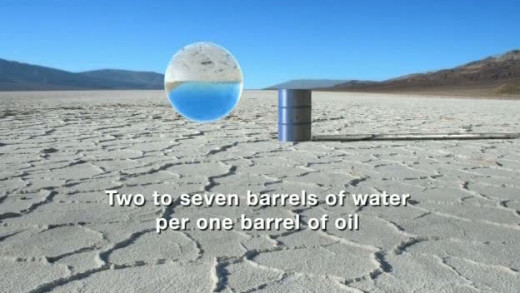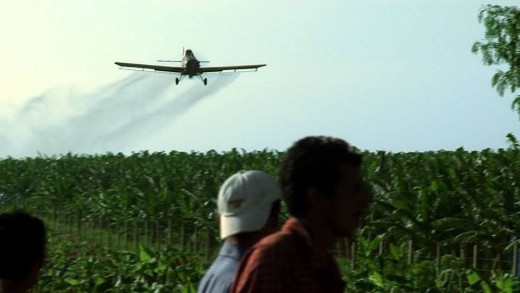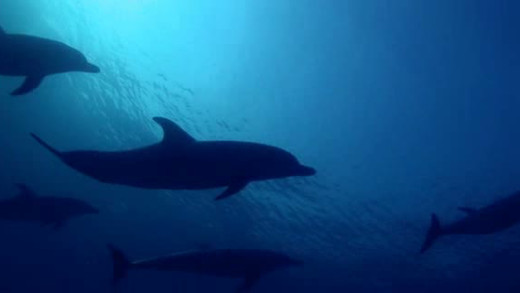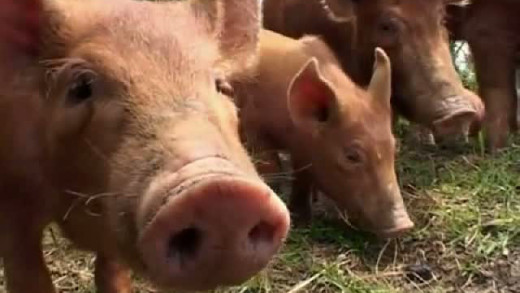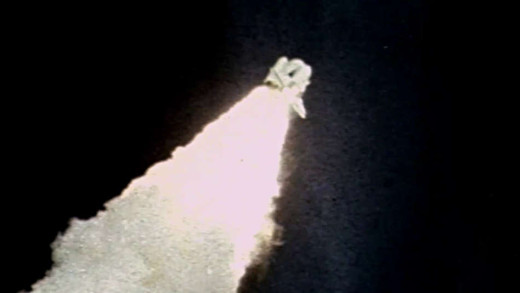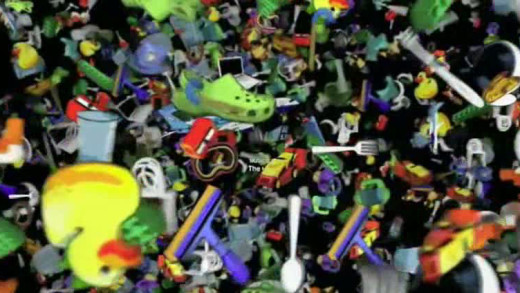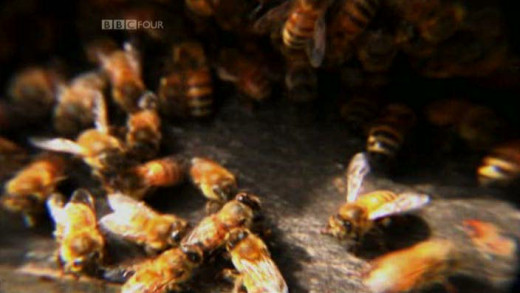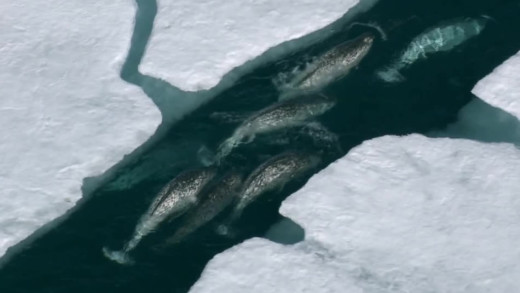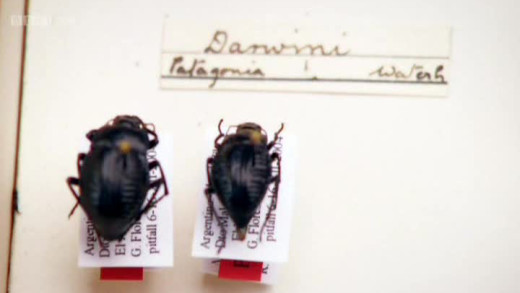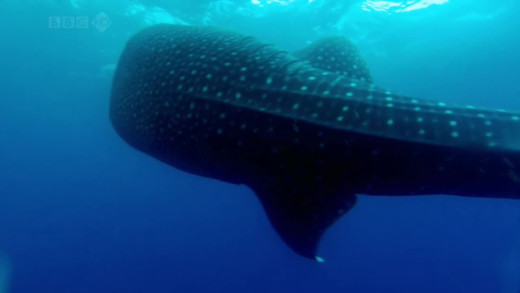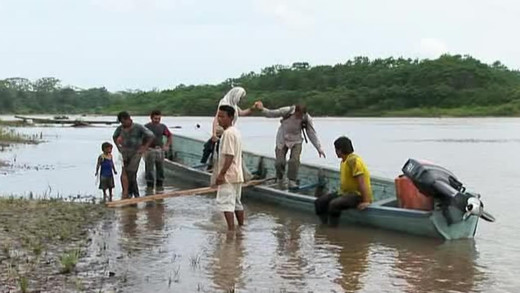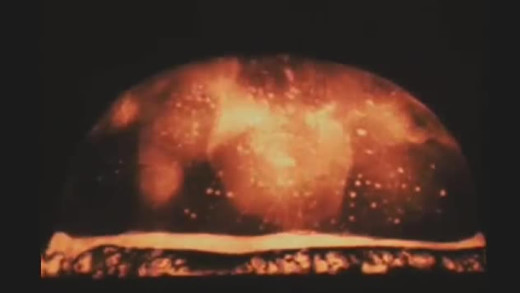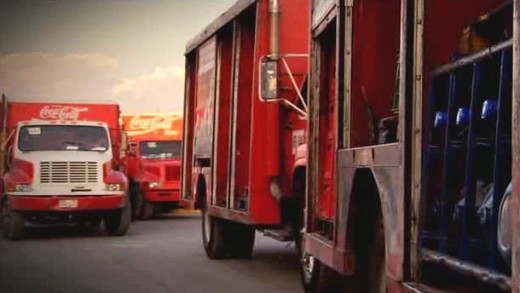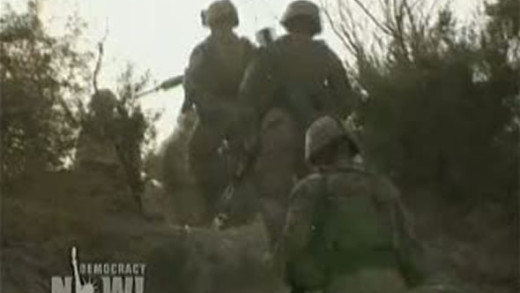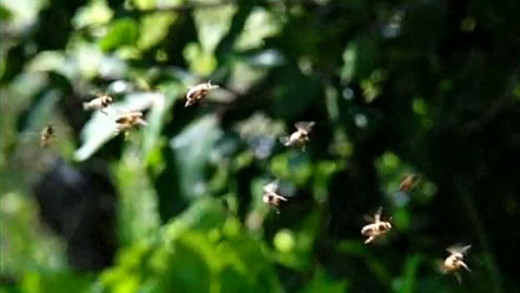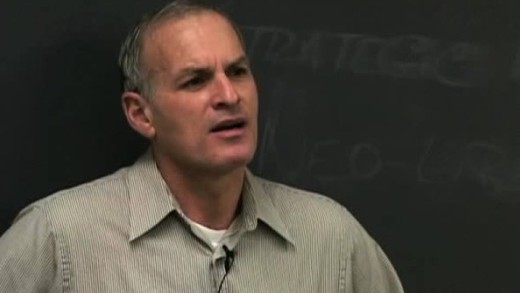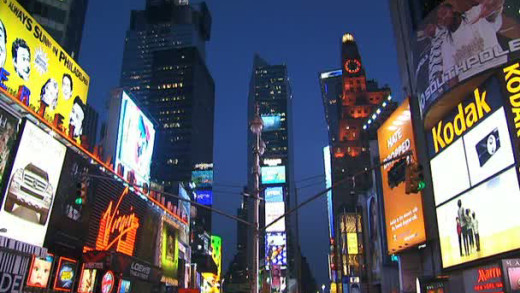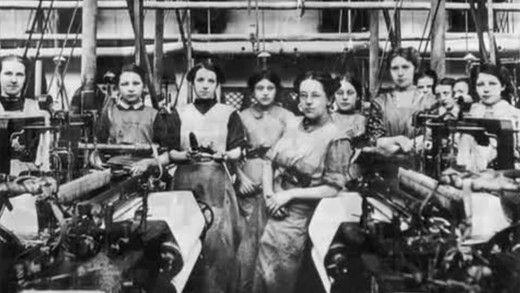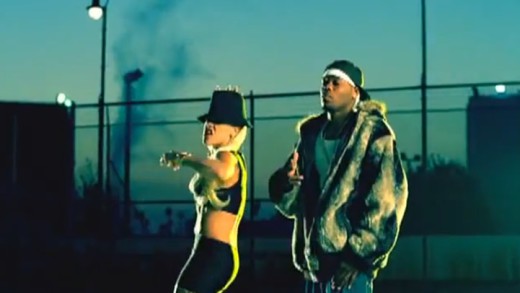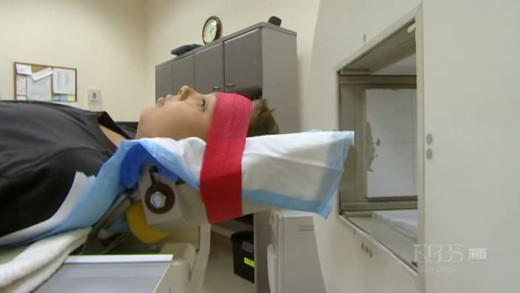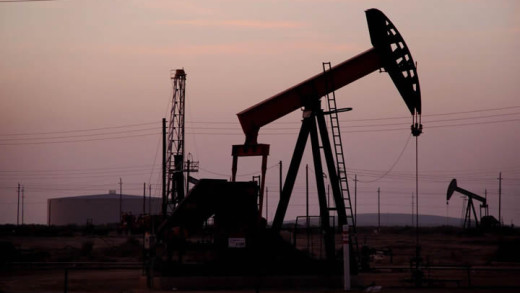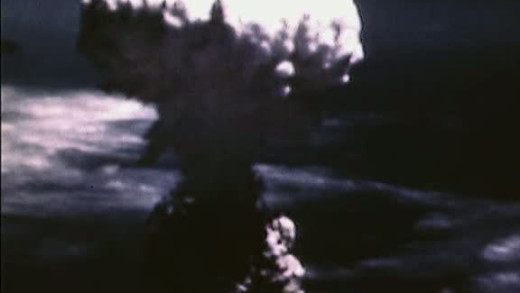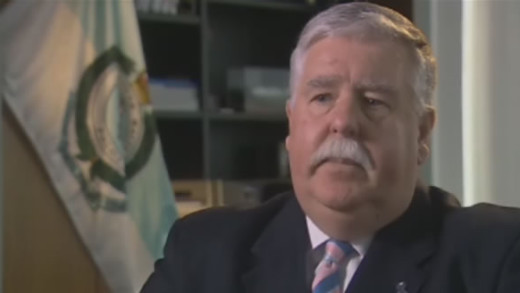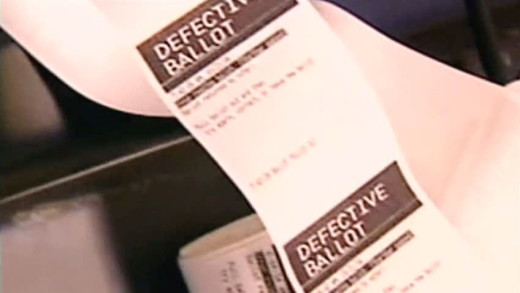Blue Gold — World Water Wars
Across the globe, this culture is polluting, diverting, pumping and wasting fresh water at a crazy rate, as population grows and technology escalates. The rampant expansion of agriculture, housing and industry increase the demands for fresh water well beyond the limited supply, resulting in the desertification of the Earth. Corporate giants force developing countries to privatise their water supply for profit, Wall Street investors target desalination and mass bulk-water export schemes, while governments use water for economic and political gain. Military control of water emerges and a new geo-political map and power structure forms, setting the stage for global conflict over fresh water. Blue Gold follows numerous worldwide examples of people fighting for their basic right to water, from court cases to United Nations conventions, to revised constitutions, to local protests at grade schools, to complete revolutions. A line is crossed when water is a commodity. Will you fight to stop it and protect it?
Bananas!*
Bananas!* documents the legal battle of banana plantation workers in Nicaragua against the Dole Food Company over cases of sterility caused by the pesticide DBCP. The chemical, despite being banned, was knowingly sprayed on crops and workers. The result is the same old battle with corporate power as the film unpacks the issues of the case and the lives of the workers through the local lawyer Juan Dominguez. Dominguez bridges the gap between the rapacious North American company and the South American workers who were not told about or protected from the pesticide, to make a claim against one of the largest corporations in the world for justice for its workers.
The Cove
The Cove analyses and questions Japan’s dolphin hunting culture, being a call to action to halt mass dolphin kills, to change commercial fishing practices and to inform and educate the public about the risks and ever increasing hazard of mercury poisoning from dolphin meat. Told from ocean conservationist Richard O’Barry’s point of view, The Cove documents a group of Taiji fishermen who engage in mass dolphin kills, which in large part, are motivated by the tremendous revenue generated for the town by selling some of the captured dolphins to aquariums and marine parks. The dolphins that are not sold into captivity are then slaughtered in the cove and the meat is sold in supermarkets…
Pig Business
Pig Business investigates the rise of factory farming, a system which abuses animals, pollutes the environment, threatens human health through dangerous overuse of antibiotics and destroys rural communities. The film shows how this system which was developed in the United States and is now being used in eastern Europe from where the pork, often produced below legal animal welfare standards, is exported to other EU countries putting local farmers out of business…
Pax Americana
Pax Americana and the Weaponization of Space takes us to the Cold War and beyond, where an arms race of weapons technology plays out by the world’s superpowers in space. Satellites, nuclear weapons, tracking technologies, rockets—the weaponisation of space was and is more of the same colonialism in the tradition of empire, much like the sea battles of the 18th and 19th centuries. Indeed, as we learn through Operation Paperclip, the United States recruited than 1,600 scientists from Nazi Germany for work in the Space Race after the end of World War II. Fast forward to today, in the name of protecting commercial investment, the United States has crowned itself with being the so-called “arbiter of peace” in space. But with their weapons industry replacing almost all other manufacturing in America, this claim is ludicrous. More than fifty cents of every US tax dollar is spent on the military. The dream of the original Dr. Strangelove, Wernher von Braun—the Nazi rocket-scientist turned NASA director—has survived every US administration since World War II and is coming to life ever more rapidly. Today, space is largely weaponised, a massive military-industrial-complex thrives, and many nations are manoeuvring for advantage with yet more weapons of war, surveillance, and control.
Plastic Planet
Plastic Planet is an up close and detailed examination of one of the most ubiquitous materials of our age, the plastic age. This controversial and fascinating material has found its way into every facet of our lives, literally. Plastic Planet takes us on a journey around the world, showing that plastics are a threat for human health and the ecosystems of the planet…
The Gruen Effect
The Gruen Effect is a biographical film of Victor Gruen, considered by some to be the grand architect of the modern shopping mall and pedestrian zone. His ideas about urban planning have led to cities that serve the new gods of consumption, developing concepts that have reshaped the modern world. But in perhaps the ultimate of ironies, a naïve Gruen initially envisioned shopping centres as utopian communal spaces that would bring people together. However, developers took these ideas to brood the emergence of suburbia and the new era of consumption that would come to define the post-war world. Viewed with a critical eye, and tracing the path from Gruen’s prewar Vienna, to the 1950s America, and back to Europe in 1968, The Gruen Effect can show the themes and translation errors that have come to define intensely colonising urban life, along with a disappointed Gruen appalled at the impact shopping centres have on communities.
Who Killed The Honey Bee?
Bees are the number one insect pollinator on the planet, helping the reproduction of many species of plants—apples, berries, cucumbers, nuts, cabbages, cotton—all of which industrial agriculture blindly relies on. But the bees are dying in their millions. Empty hives have been reported across the globe. In England, the matter has caused bee-keepers to march on parliament to call for research. But perhaps we can know what’s going on already. Who Killed The Honey Bee? is a mainstream-media investigation into the collapse of bee populations from a tragic anthropocentric perspective, travelling across the farms of California to the flatlands of East Anglia to the outback of Australia. The film-makers talk to bee-keepers whose livelihoods are threatened by colony collapse disorder, to scientists that are looking at the problem, to Australian bee-keepers who are making a fortune replacing dying bees in other countries for industrial agriculture. Is the reason for declining bee populations due to some kind of plague, pesticides, malnutrition or combination of these? Or is the real underlying answer something more fundamental?
Death on a Factory Farm
Having received a tip from an employee at a farm where animals were being abused, including a claim that pigs were being hung by chains and strangled to death as a form of ‘euthanasia,’ the Humane Farming Association (HFA) turns to an undercover investigator going by the name of “Pete.” While wearing a hidden camera, Pete secretly films while he works undercover as a farmhand at Wiles documenting numerous incriminating scenes, including piglets being tossed into crates from across a room, impregnated sows held in pens impeding their ability to move, an unhealthy piglet being hit against a wall to kill it, and a sick sow being hung by a chain from a forklift until it choked to death. Having obtained this evidence, Pete concludes his investigation and quits the job at the farm. In the subsequent trial carried by the HFA, the prosecutors and the defence argue the legality and morality of these practices. The presiding judge describes it as “distasteful and offensive,” however, rules that such are the realities of factory farming…
The Beauty Myth
Presented by author and activist Naomi Wolf, The Beauty Myth explores the phenomenon of how the social power and prominence of women has increased in the past few decades, alongside a paradoxical increase in the pressure they feel to adhere to unrealistic social standards of physical beauty, appearance and presentation. It seems the more legal and material hindrances women have broken through, the more strictly and heavily and cruelly images of female beauty have come to weigh upon us. Women have breached the power structure, but meanwhile eating disorders have risen exponentially and cosmetic surgery has become a fastest-growing specialty. Pornography has become the main media category—ahead of legitimate films and records combined—and thirty-three thousand American women told researchers that they would rather lose ten to fifteen pounds than achieve any other goal. How did this come to be? The Beauty Myth shows how the edacious commercial culture drives this pressure and leads to a pervasive preoccupation with appearance in both sexes, compromising the ability of women to be effective in and accepted by society. The film is a call to question the culture and redefine the notions of success, beauty and indeed what it means to be a sane human being in this toxic culture.
Nature’s Great Events
Nature’s Great Events is a series of films that look at how seasonal changes cause shifting weather patterns and ocean currents, which in turn create the conditions for some of the planet’s most spectacular wildlife events. Each episode focuses on the challenges and opportunities these changes present to a few key species. We see the impact of the melting of the arctic ice in the summer, the annual return of the salmon, the impact of the migration of wildebeest on a pride of lions, the annual winter sardine run along the coast of Africa, and the great feast in the ocean when the plankton blooms; amongst others…
NATO’s Secret Armies: Operation Gladio
In 1990, alarming evidence of NATO-sponsored terrorist attacks came to light. NATO’s secret “stay behind” armies that were set up across Western Europe after the Second World War were supposedly intended to help put together a resistance if the Soviet Union invaded. However, they went on to commit terrorist attacks against their own populations, so as to influence domestic politics. The forces still exist post-Cold War. This film is the shocking story of Operation Gladio—a tale of espionage, conspiracy and political violence carried out by the United States.
Charles Darwin and the Tree of Life
David Attenborough asks three key questions: How and why did Darwin come up with his theory of evolution? Why do we think he was right? And why is it more important now than ever before?
Life
Life is a ten part series that takes a global view of the specialised strategies and behaviour that living things have developed in order to survive. The series illustrates the common features that have contributed to the success of each species, focusing in on specific groups as the series progresses.
Crude
As one of the largest and most controversial legal cases on the planet, Crude takes a look inside the $27 billion “Amazon Chernobyl” case, viewing the real-life high stakes legal drama set against a backdrop of the environmental movement, globalisation, hackneyed celebrity ‘activism’, human rights, multinational corporate power and rapidly-disappearing indigenous cultures…
Child Sex Trade USA
Child Sex Trade USA travels through the United States to reveal the workings of a pervasive child sex trade, discovering that it is just as easy to ‘buy a child’ in the US as it is in Asia. 300,000 American children have been forced in to the sex industry, as of 2009, in the United States alone. This film presents a much needed analysis of the shocking cultural values that surround child abuse, paedophilia, human trafficking and prostitution; asking big questions of how, why, and what to do about it…
Golden Rule — The Investment Theory of Politics
Golden Rule presents a picture of today’s political economy interpreted through the framework of the “Investment Theory of political Parties”. The theory, first articulated in 1983 by Thomas Ferguson, is largely based on quantitative analysis of activity in the stock market and its relationship to politics—that is to say that “elections are moments when groups of investors coalesce and invest to control the state.” The film takes this theory and tests it against developments in the political and social spheres of recent decades, right up to the election of Barack Obama in the United States in 2008…
The Coca Cola Case
Coca Cola is one of the most visible brands in the world, but there’s one part of the operations the corporation doesn’t want you to see. Colombia is the trade-union-murder-capital of the world. Since 2002, more than 470 workers’ leaders have been brutally killed, usually by paramilitaries hired by private companies intent on crushing the unions. Amongst the top unscrupulous corporate brands is Coca Cola…
Red Moon
With humour and refreshing candour, Red Moon provides a fascinating, often ironic, take on the absurd and frequently dangerous cultural stigmas and superstitions surrounding women’s menstruation. As educational as it is liberating, the film functions as both a myth-busting overview of the realities of menstruation, and a piercing cultural analysis of the ways in which struggles over meaning and power have played out through history on the terrain of women’s bodies.
How The US Funds The Taliban
Welcome to the wartime contracting bazaar in Afghanistan. It is a virtual carnival of characters with shady connections—former CIA officials and ex-military officers joining hands with former Taliban and mujahedeen to collect US government funds in the name of the war effort. US military’s contractors pay suspected insurgents to protect American supply routes. It is an accepted fact of the military logistics in Afghanistan that the US government funds the very forces American troops are fighting—a deadly irony…
Vanishing of The Bees
Bees have been mysteriously disappearing, literally vanishing from their hives. Known as ‘Colony Collapse’, the phenomenon has brought the commercial food industry to crisis. Commercial honeybee operations pollinate monocrops that make up one out of every three bites of food in the western world. Vanishing Of The Bees follows beekeepers David Hackenberg and Dave Mendes as they strive to keep their bees healthy and fulfil pollination contracts across the United States; examining the alarming disappearance of honeybees and the greater meaning it holds about the relationship between industrial culture and ecology…
1929: The Great Crash
Over six desperate days in October 1929, the New York Stock Exchange crashed leading to the collapse of three thousand banks, taking people’s savings with them. In a matter of days, the United States economy was obliterated. The crash was followed by a devastating worldwide depression that lasted until the Second World War. Finances did not regain their pre-crash values until 1954. This film recounts the story of a financial disaster that we hoped could never happen again, revealing the familiar tune of cheap credit, consumerism, greed, corruption and cronyism in the current-day financial crisis…
Corporations On Trial
Corporations On Trial is a five-part series following just some of the many lawsuits being brought against multinational corporations for war crimes, conspiracy, corruption, assassinations, environmental devastation and payments to terrorists. Such serious charges have forced some of the world’s largest companies to hire high-profile defence lawyers to protect public relations in cases often brought by plaintiffs who are barely literate. These five films reveal a growing anxiety about the power and influence of big business, as many multinational corporations have annual revenues greater than some countries’ national budgets and indeed increasingly hold governments to ransom by their economic power. Around the world, ordinary people are fighting back and asking how many more times their interests should be sacrificed for corporate greed and shareholder profit…
American Radical
American Radical is a film about the life of academic Norman Finkelstein, a son of Holocaust survivors and ardent critic of Israel. Called a lunatic and self-hating Jew by some, and an inspirational figure by others, American Radical also serves to explore the issues at the centre of Palestine and Israel as Finkelstein travels around the world negotiating a voice of realism among impassioned critics and Israeli supporters. Uncompromising, even in the face of a denial of tenure at DePaul University, Finkelstein is revealed as a rare academic figure who puts the pursuit of justice above the security of his career, to expose the brutal reality of the occupation of Palestine.
Dirty Oil
Dirty Oil looks into the strip-mined regions of Alberta, Canada, where the vast and toxic Tar Sands currently supply the United States with the majority of its oil. Through the eyes of corporate officials, politicians, scientists, doctors, environmentalists and communities directly impacted by the largest industrial project on the planet today, Dirty Oil travels to both sides of Canada to document the irreversible toll the tar sands take, further fuelled by the western world’s addiction to oil…
The Chicago Sessions
The Chicago Sessions explores the ethical implications of the financial crisis during three sessions with a group of law and philosophy students. The grounds of the University of Chicago provide a compelling arena, since it is here that both economist Milton Friedman—staunch promoter of free market capitalism—and Barack Obama, lectured. Examples of crisis related issues discussed during the sessions are: mortgage lending practices, foreclosures, bail outs and CEO pay. The students will test their ideas both on eminent professors and on field experts. The discussion is fueled and illustrated by case stories that the students themselves provide. The cases show how the financial crisis really affects the people of Chicago and in one example shows the consequences of the foreclosures in a neighborhood not far from the university and Barack Obama’s home.
The Climate Wars
In the 1970s, acid rain and other ecological concerns were at the fore and it was at this time that climate change first became a pressing political issue. But the concern wasn’t global warming — it was the threat of a new ice age. So how did the scientific community manage to get it so very wrong? Uncovered 30 years later, the secret government organisation known as “Jason”, produces the first official report on global warming in 1979. Fast forward to the mid 1980s and global warming had already become a serious political issue. However, it is not until the 1990s that the issue turns out to become one of the biggest scientific controversies of the age…
Blind Spot
Blind Spot investigates the convergence of causes behind the current crisis of global industrial civilisation. By establishing the links between fossil fuels and the falsehood of perpetual exponential economic growth, Blind Spot explains the draw down of the natural environment, and how this globalised culture is systematically killing the world in its path. The energy depletion scenario known as Peak Oil—which came to pass around 2006—requires this culture to change drastically, with dire consequences either way. By whatever measure of greed, wishful thinking, neglect or ignorance, this current way of life cannot continue and the clock is ticking fast for change.
Agent Orange: A Personal Requiem
More than three million Vietnamese people still suffer the gruelling effects of chemical weapons used by the United States during the Vietnam War. American militaries doused forests, lands and waterways of Vietnam with the deadly chemicals Agent Orange, White, Blue, Pink, Green and Purple. Agent Orange in particular, which contains dioxin—the most toxic chemical ever known—has disabled countless people and generations of their offspring. This film weaves personal stories together with the stories of American GIs to lead to a great unravelling of the first-hand devastating and lethal effects of Agent Orange and war, generations later.
The End of Poverty?
The End of Poverty? traces the growth of global poverty back to colonisation in the 15th century to reveal why it’s not an accident or simple bad luck that there is a growing underclass around the world. Featuring interviews with a number of economists, sociologists, and historians, the film details how poverty is the clear consequence of free-market economic policy which has allowed powerful nations to exploit poorer ones for their assets, turning the money back to the hands of the concentrated few. This also follows on to how wealthy nations—especially the United States—thereby exert massive debts, seize a much disproportionate exploit of the natural world, and how this deep imbalance has dire consequences on the environment and on people…
Generation M
Generation M looks at misogyny and sexism in mainstream media, exploring how negative definitions of femininity and hateful attitudes toward women get constructed and perpetuated throughout popular culture. The film tracks this across a broad and disturbing range of media phenomena: from the hyper-sexualization of commercial products aimed at girls, to the explosion of violence against women in video games aimed at boys; from the hysterical sexist rants of popular hip-hop artists and talk-radio shock-jocks, to the continually harsh, patronizing caricature of women found in virtually every area of media. Generation M posits the consequences of misogyny in all of its forms, showing that when we devalue more than half the population based on gender, we harm everyone—boys and men, women and girls alike.
The Medicated Child
The Medicated Child confronts psychiatrists, researchers and government regulators about the risks, benefits and many questions surrounding psychotropic drugs for children. The biggest current controversy surrounds the diagnosis of bipolar disorder. Formerly called manic depression, bipolar disorder was long believed to only ‘apply to adults’, but in the mid-1990s ‘bipolar disorder in children’ began to be diagnosed at much higher rates, sometimes in children as young as 4 years old…
The Price of Pleasure — Pornography, Sexuality & Relationships
Once relegated to the margins of society, pornography is now the most pervasive and visible aspect of popular culture, assuming an unprecedented role in media as its content becomes more harsh and extreme, racist and abusive. This eye-opening and disturbing film moves beyond frivolous “liberal versus conservative” debate and tackles the real issues surrounding pornography by placing the voices of performers themselves, producers and critics directly alongside the observations of women and men as they candidly discuss the role porn has played in shaping their sexual imaginations and relationships. The Price Of Pleasure reveals a nuanced portrait of how pleasure and pain, commerce and power, freedom and responsibility have become extremely twisted by popular culture, usurping the most intimate area of our lives.
Energy War
Energy War considers the continuing geopolitical consequences of the dependency on fossil fuels into the future. In the struggle for the last of the resources, countries all over the world are forced to further strategise and make strange alliances. Using the gas conflict between Georgia and Russia and the position of Saudi Arabia, Energy War travels through international markets for energy and asks: If oil and gas are scarce and expensive, where will countries turn to keep their economy going and their population warm and happy?
Nagasaki — The Horror of Fat Man
On 8th August 1945, the United States dropped its second atomic bomb on Nagasaki, Japan, three days after the bombing of Hiroshima. The city was a veritable apocalyptic vision, devastated by this new type of weapon. Nagasaki — The Horror Of Fat Man documents the memories of survivors, both Japanese civilians and Western Prisoners Of War, as they relate the morbid aftermath of the bombings, the United States occupation, and the segregation that still effects fallout victims to this day.
Stretching The Law
For 20 years the NSW Crime Commission went about its business with drugs quietly. When it scored a bust, it stood back and let politicians and the police bask in credit. But all that changed with the sensational arrest of the commission’s assistant director, Mark Standen, on charges of trafficking drugs. His spectacular downfall threw a spotlight onto the Crime Commission’s remarkable array of powers and how it abuses them. Secret hearings, witnesses compelled to answer questions, broad powers of search and surveillance, no independent review process…
Fool Me Twice
Fool Me Twice documents the Australian government’s lies about the East Timor massacres, the cover-up of the Bali bombings (including the 1993 World Trade Centre attack) and subsequent anti-terror legislation forced through parliament by the Howard government. Laws that are still in effect today…
Fabled Enemies
Fabled Enemies examines the US government’s intelligence apparatus and its involvement in the events of September 11, 2001. Many questions surround the proceedings of that day. What were the precise actions of a shadow government operating in an underground bunker with Dick Cheney? Why did the FBI have their investigations into Bin Laden obstructed and shut down by George Bush before the attacks? Were the alledged hijackers trained at US military bases? Why was the military running exactly the same situation as ‘war games’ at exactly the same time of the attack?
Uncounted — The New Math of American Elections
Uncounted documents how the election fraud that altered the outcome of the 2004 election led to even greater fraud in 2006 and now looms as an unbridled threat to the outcome of the 2008 and future elections. The film shows how easy it is to change election outcomes and undermine election integrity across the United States using electronic voting machines and even other simple methods of manipulation…
The Price We Pay
“Supermarkets have bulked up. These days they’re retail superpowers who make money not just when we eat or drink but increasingly when we fill the petrol tank, play pokies or buy a hammer from the local hardware – and they’re quietly stalking pharmacies, newsagents and florists. Coles and Woolworth’s sell 70 percent of the dry groceries and half the fresh food that Australians consume – among the highest concentrations of market power in the developed world”…
